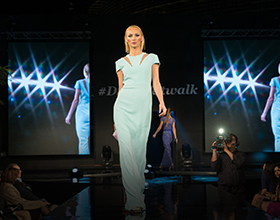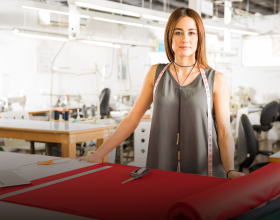Join econexia
Recursiveness in the fashion industry

Contingencies force us to rethink things and impact even the remotest corners of everyday experience, and that includes citizens' attitudes towards clothing and purchasing decisions.
There, the creativity of designers, textile manufacturers, agency personnel of a different nature and, in general, of all actors in the fashion industry, tends to be enhanced. Historical background The First World War accelerated the transition to more functional women's fashion, given the needs of women who were working in munitions and aeronautics factories. The Second World War showed that designers had the ingenuity to respond to the moment and be reborn from the crisis. The textile austerity decreed in England created a successful business model; for example, that of luxury designers creating lines of mass diffusion, as today H&M does with different cult designers.
In Colombia
• Confecciones Asmodel S.A.S and Hogar y Telas S.A.S. These are two of the 50 companies that make brands such as Bronzini underwear and pajamas for Grupo Éxito, in the departments of Antioquia, Valle del Cauca, Caldas and Tolima. Now, they dedicate their manufacturing machines to mass-produce and commercially masks and other types of facemasks.
• Manufacturas Bajo Cero. The Colombian manufacturer of thermal clothing is focusing on the current circumstances, in the design, manufacture and commercialization of garments for the protection of people exposed to contamination conditions.
• Color Siete. It is one of the clothing chains that despite having to close its stores due to isolation, chose not to lay off employees and decided to send them on early or expired vacations. It is dedicated to the national and international production and marketing of clothing and accessories, and now also produces masks for employees and sells them through e-commerce channels.
• Brassieres Haby Factory. This underwear company, which was born in 1965 in Medellín, added three models of reusable masks to its clothing line, which it sells in packages of 20 units. The foregoing shows that many entrepreneurs and designers have put their knowledge and machinery at the service to reinvent themselves and adapt to the crisis caused by the coronavirus and that Colombian ingenuity does not stop.
Learn more content by touring the ecosystem.
Sources: https://www.upb.edu.co/es/noticias/opinion-respuesta-industria-moda-ante-covid19 - https://www.eltiempo.com/economia/empresas/empresas-que-se-reconvirtieron-en-la-pandemia-487666
- A partnership:





